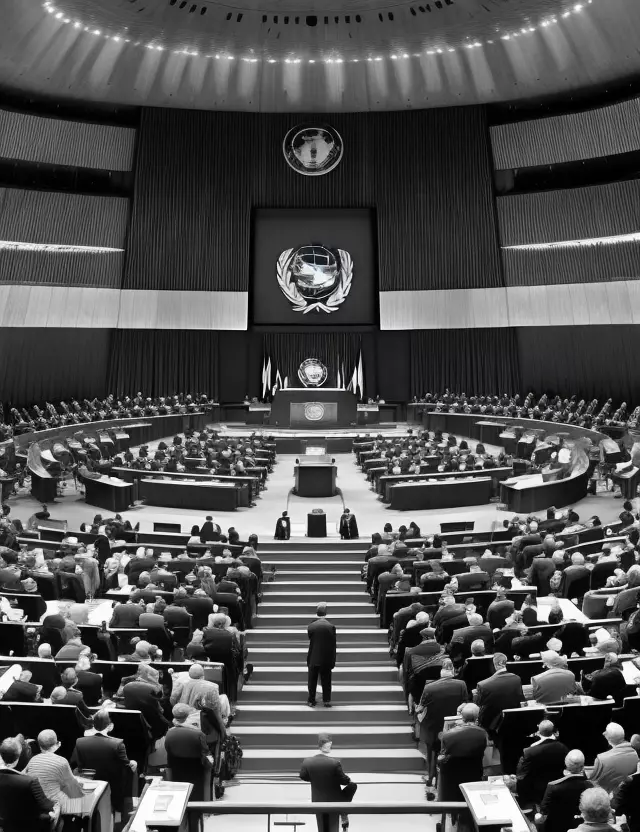The United Nations General Assembly's Inaugural Meeting
January 10, 1946

The United Nations General Assembly's Inaugural Meeting
On January 10, 1946, the United Nations General Assembly convened its first meeting in London, marking a historic moment in the establishment of the United Nations (UN). Coming in the aftermath of World War II, this meeting set the stage for a new era of global cooperation and diplomacy.
Post-World War II Landscape
The devastation of World War II highlighted the need for a more effective international organization to promote peace and prevent conflicts. The UN was envisioned as a forum where nations could come together to address shared challenges and work towards common goals.
Founding Principles
The UN General Assembly's inaugural meeting laid the foundation for the organization's commitment to principles such as sovereign equality, peaceful resolution of disputes, and international cooperation. Delegates from member nations deliberated on ways to rebuild a war-ravaged world and promote global stability.
Global Diplomacy
Representatives from a diverse array of countries engaged in discussions on pressing issues, including reconstruction, human rights, and economic development. The UN provided a platform for dialogue and collaboration, emphasizing the importance of diplomatic solutions over armed conflict.
Commitment to Peace
The establishment of the UN General Assembly underscored a collective commitment to maintaining peace and fostering cooperation on a global scale. In the post-World War II landscape, the UN became a symbol of hope for a more harmonious and interconnected world.
Enduring Legacy
As the inaugural meeting concluded, it marked the beginning of the UN's enduring legacy as a central institution for international cooperation. Over the decades, the UN General Assembly has continued to play a crucial role in addressing global challenges, fostering dialogue, and advancing the cause of peace.
Reflecting on History
On the anniversary of the UN General Assembly's inaugural meeting, we reflect on the historical significance of this event. It stands as a testament to the collective will of nations to build a better future through diplomacy, cooperation, and a shared commitment to peace.



